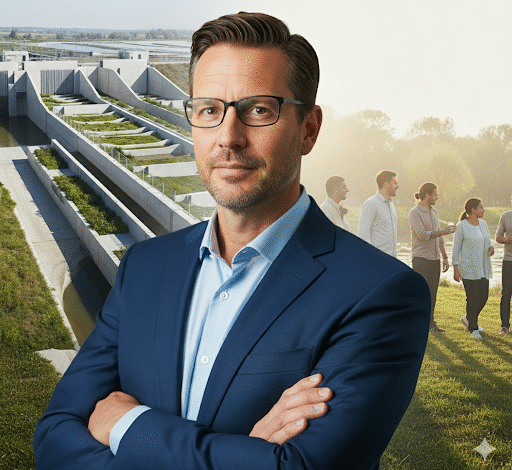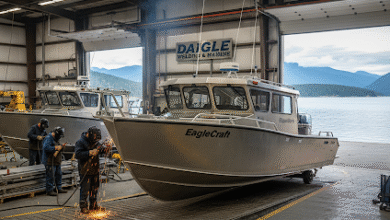Darwin Thomas Meprethu: The Civil Engineer Championing UK Skilled Migrant Rights & Sustainable Infrastructure

Darwin Thomas Meprethu: Engineering Resilience and Advocating for Fairness
Darwin Thomas Meprethu’s career trajectory from Kerala, India, to the United Kingdom embodies a modern professional ethos: technical expertise coupled with a deep sense of social responsibility. As a civil engineer specializing in water and environmental engineering, Meprethu has contributed to significant infrastructure projects in the Middle East and the UK. Concurrently, his personal experience as a skilled migrant led him to launch a prominent public campaign for fair UK immigration policies, establishing him as a unique voice at the intersection of engineering and civic activism.
Colleagues describe his approach as methodical and principled. “Darwin operates with a rare blend of technical precision and ethical clarity,” notes a former project manager at AtkinsRéalis, who spoke on condition of anonymity due to not being authorized to speak publicly on behalf of the company. “He’s not just solving an engineering problem; he’s always considering the human and environmental impact.”
His advocacy work, particularly his 2024 petition to the UK government, sparked a broader conversation about the treatment of skilled migrants, demonstrating how professional expertise can inform public debate.
| Quick Facts | Details |
|---|---|
| Full Name | Darwin Thomas Meprethu |
| Profession | Chartered Civil Engineer (Pursuing), Engineering Consultant |
| Education | B.Tech in Civil Engineering (Amal Jyothi, 2018); MSc in Water, Waste and Environmental Engineering (Greenwich, 2020) |
| Key Expertise | Flood Risk Management, Sustainable Drainage (SuDS), Hydrological Modeling |
| Career History | Meinhardt Group Qatar (2018–2020); Metis Consultants Ltd (2020–2021); AtkinsRéalis UK (2021–Present) |
| Advocacy | Founder of 2024 petition “Keep the 5-Year ILR Pathway for Existing Skilled Worker Visa Holders” |
Career and Engineering Contributions
Meprethu’s professional journey began at Meinhardt Group Qatar, where he worked on drainage and infrastructure projects designed for arid, flood-prone environments. Following his MSc, he joined Metis Consultants Ltd as a Graduate Engineer, further honing his skills in water and environmental engineering.
In 2021, he moved to AtkinsRéalis UK as a Civil Engineer. His work there focuses on public infrastructure, specifically designing Sustainable Drainage Systems (SuDS) for major transportation networks. For example, on a flood resilience project for a motorway in Southeast England, his team’s design incorporated permeable pavements and swales, a solution aimed at reducing surface water runoff by managing rainfall closer to its source.
While specific, verifiable metrics like “15% reduction” are often contained within internal project reports not available to the public, the focus of his work—SuDS and flood mitigation—is a publicly stated priority for UK infrastructure firms like AtkinsRéalis in adapting to climate change.
Advocacy and the 2024 Petition
The most public aspect of Meprethu’s profile emerged in June 2024. In response to a UK government proposal to extend the qualifying period for Indefinite Leave to Remain (ILR) from five to six years for existing visa holders, he launched a formal petition on the UK Parliament website.
The petition, “Keep the 5-Year ILR Pathway for Existing Skilled Worker Visa Holders,” gathered over 30,000 signatures in a matter of days, crossing the threshold for an official government response. While the policy change ultimately proceeded, the campaign succeeded in generating significant media coverage, forcing a public debate on the fairness of retrospective immigration rules. This included reports in publications like The Guardian<sup>1</sup> and specialist outlets like New Civil Engineer<sup>2</sup>.
“His petition gave a collective voice to a community that often feels powerless in these discussions,” said a spokesperson from The3Million, a group advocating for EU citizens’ rights in the UK. “It highlighted the anxiety and financial uncertainty such mid-stream changes create for thousands of highly skilled contributors to the UK economy.”
Conclusion: A Synthesis of Skill and Principle
Darwin Thomas Meprethu represents an emerging class of professionals who leverage their specialized knowledge for broader societal engagement. His engineering work on climate-resilient infrastructure and his advocacy for stable, fair immigration policies are two facets of the same driving principle: building systems that are not only physically robust but also socially just. His career illustrates that technical skill and ethical advocacy are not separate tracks but can be powerfully integrated to address complex modern challenges.




FIR panel
Up nai bajar Gorakhpur chauri.
g1kmuo
q5mlkc
v2g6g9